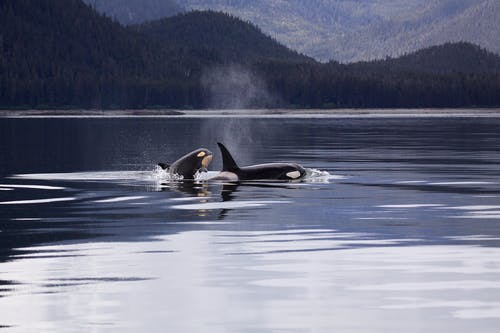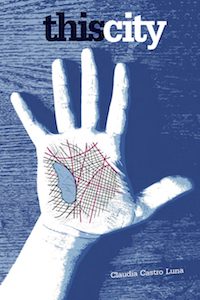The Land of Overwhelm
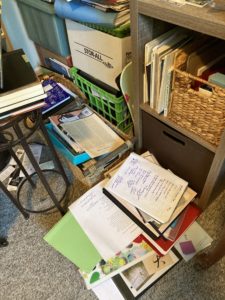 I talked to my friend Carla this afternoon while I took my second walk of the day. After a sunny morning, the sky was overcast and the air felt close. Before I was finished I swear I felt a drop of rain. Carla said she was struggling a bit: “Maybe it’s the pandemic. But it’s not just that.” I have been feeling antsy and, frankly, a little crazed, myself. Today I looked at the sky and reminded myself of how much impending weather plays with my moods.
I talked to my friend Carla this afternoon while I took my second walk of the day. After a sunny morning, the sky was overcast and the air felt close. Before I was finished I swear I felt a drop of rain. Carla said she was struggling a bit: “Maybe it’s the pandemic. But it’s not just that.” I have been feeling antsy and, frankly, a little crazed, myself. Today I looked at the sky and reminded myself of how much impending weather plays with my moods.
I am finished with my mystery novel and poised to get it out to agents. Poised to begin in earnest with typing the new mystery (so far scribbled into various notebooks). I’m also making a valiant effort to pull together a poetry manuscript. My present writing mood is an anxious grieving coupled with a feeling of being about to burst … maybe into bloom. I’m not sure yet.
My youngest daughter is in California with a friend. “Do you know there’s a pandemic?” I asked her, and she said, “Can we use your car?” Right now she’s staying with an old friend of mine, who–like me–has an empty nest and a great need to mother somebody. She talked the kids into canceling their hotel reservations in San Diego and spending three more days with her and her husband. So that makes me happy. It makes me happy that Emma was in the ocean today and saw five dolphins and a pelican. Despite everything else going on in the world, there are also dolphins.
Who knows why (or check “all of the above”) but this weekend I have spent a bunch of hours reorganizing one of my writing spaces. On Friday afternoon, I decided to move a big file cabinet from a corner of the playroom downstairs to my “zoom room” upstairs. First, I had to empty it. I found records for my 1981 Datsun, a copy of my wedding invitation, and six months of bottle-feeding and diapering records that we kept when our twins were born — from July 12 to mid-December 1993. (Good grief, what were we thinking?)
I also found drafts of novel openings that never went anywhere, short stories I had forgotten I ever wrote, tons of old Creative Writing Program journals, and stacks and stacks (and stacks) of poetry. I had kept every program for the old Castalia reading series, and other people’s poems from four years of Professor Bentley’s workshops–four quarters per year, labeled and dated. 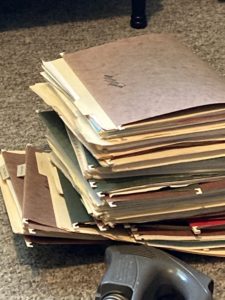
From all of these, I kept copies of my poems with Nelson’s comments on them. I kept a handful of the Castalia programs and a copy of the news article about his death, at age 72, of cancer. I kept my wedding invitation.
I felt a little like Theodore Roethke in his “Elegy for Jane.” (If you don’t already have it memorized, click on the link to hear Roethke read this 22-line poem for his student.) Or, I don’t mean his experience in the poem, but the story Nelson told us: that when Roethke came across his student Jane’s poems in his office files, he gave the bundle of papers a kiss and threw it into the trash.
I threw most everything into the recycle bin. So many people I will never see again. So many poems that I thought someday I would make the time to reread. Maybe I didn’t feel like Roethke. I felt more like Jane, as though I were a ghost, “waiting like a fern, making a spiney shadow.”
But I also felt lighter. I felt a little more able to move forward. Or to imagine moving forward.
Before I finished for the day, rain began. The dark swooped in a little earlier this evening, along with that smell that is partly rain, partly chill, and partly the scent of woodsmoke. It reminded me that even in the “Time of Corona” (as another friend calls it), one season is ending and another tiptoeing into the room.
Carla’s right. It’s the pandemic, and it’s not the pandemic.

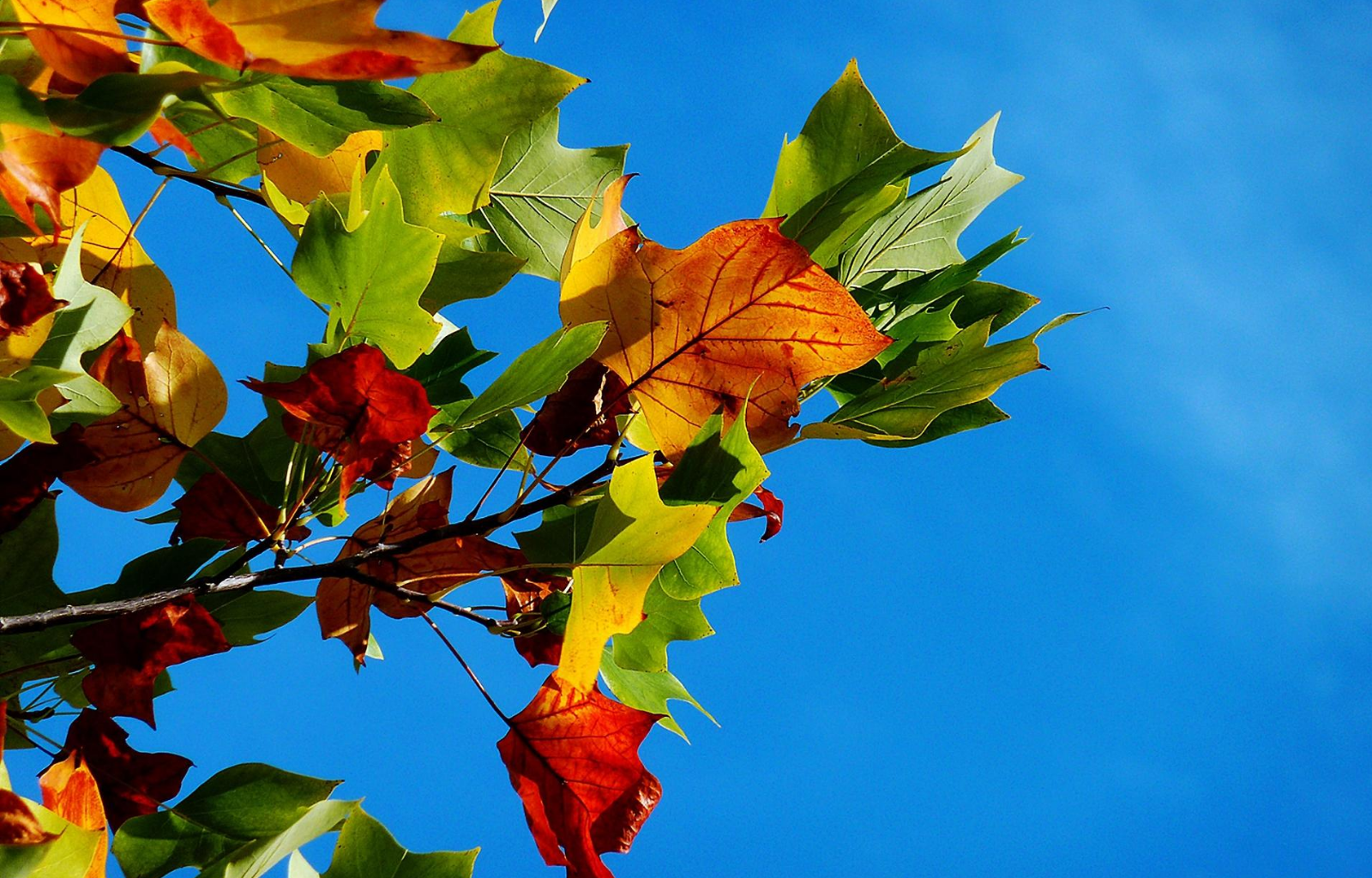
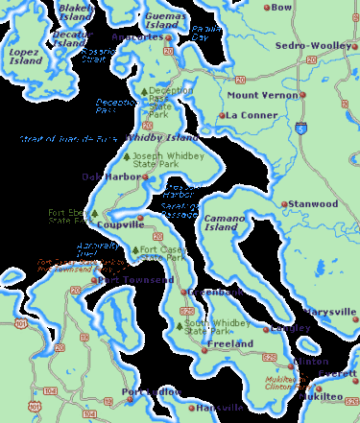
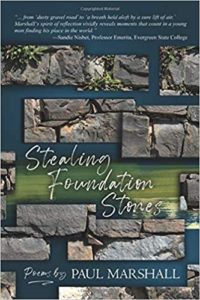 What a thrill to hold this book in my hands!
What a thrill to hold this book in my hands!